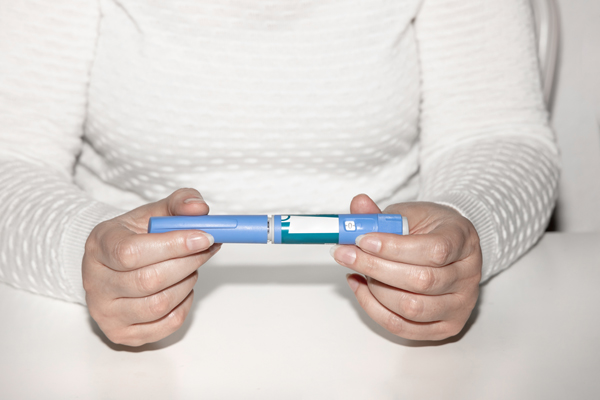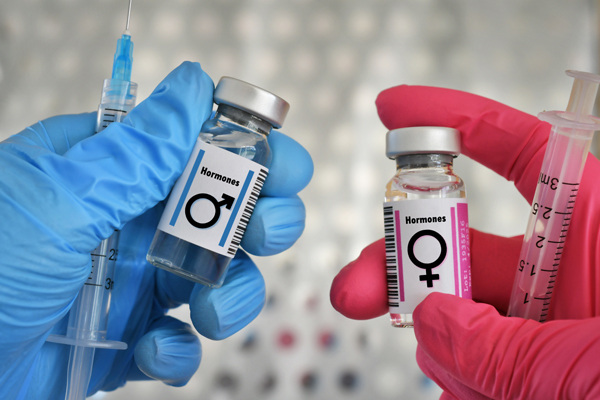Nutrition ProgramFriendswood, TX
Nutrition programs are tools that help with weight loss and change your relationship with food. The most effective weight loss does not come in a quick-fix form, especially if you want long-lasting results. You have to change your mindset and lifestyle.
Reset Medical offers a nutrition program to help you achieve your weight loss goals. We do not stop here; we strive to help you learn how to adopt a healthier lifestyle and sustain results after completing your program. Contact our Friendswood office by calling 1-281-816-4707 to schedule a consultation.
Understanding a Relationship with Food
Before jumping into any nutrition program, patients need to understand their current relationship with food. This process involves patients understanding what food does to their bodies and the true reason(s) they seek it.
While many know that food’s primary purpose is to fuel the body, some still seek it for other reasons without even realizing it. Typically, this has to do with emotional, social, and mental ties, creating a negative relationship with food. Common examples of personal relationships with food can include:
- Eating certain food causes guilt
- Eating out of boredom
- Food is comforting
- Food is pleasurable
- Food was used as a weapon in the past
- Lack of or inaccurate education
- Situations were pacified with food during childhood
With a variety of other reasons that can cause a negative relationship with food, our team can help uncover them with a nutrition program.
“This process involves patients understanding what food does to their bodies and the true reason(s) they seek it.”
What is a Nutrition Program?
Reset Medical’s nutrition program encompasses many factors, such as helping patients learn about their relationship with food, retraining their mindset, learning about the different aspects of food, and self-discipline—perhaps the most important factor. These factors are provided to the patient over the course of a few months. Some require three months; others will need six. Note that it is normal for some patients to need up to 12 months to achieve their goals. It all depends on the patient’s starting point and how much effort they put into the program at home.
Our team arms patients with the education they need to prepare healthy meals at home. Weekly or biweekly check-ins allow us to monitor their progress while replacing negative or unhealthy thought processes surrounding food with more positive or healthy ones. This time also allows us to have open and honest conversations about what went well and where improvements can occur.
Further, there will be adjustments in each phase of the process. As the patient learns about food and their body, they will likely be placed on a calorie deficit. The exact number of allowed calories per day will vary for each patient, as everyone’s body and goals are different. It also will change as patients hit certain milestones within their plans.
“Reset Medical’s nutrition program encompasses many factors, such as helping patients learn about their relationship with food, retraining their mindset, learning about the different aspects of food, and self-discipline—perhaps the most important factor.”
Determining The Right Nutrition Program
Patients will undergo a health screening before entering our nutrition program, during which, we get a baseline of their physical and mental well-being. We do this by conducting urine and blood tests to uncover hidden conditions or factors that may inhibit weight loss efforts. It ends with an open and honest conversation, getting to know the patient on a deeper level before establishing a weight loss plan.
“Patients will undergo a health screening before entering our nutrition program, during which, we get a baseline of their physical and mental well-being.”
Factoring in Physical Activity
Remember weight loss is 80 percent diet—a significant portion, not doubt—and 20 percent exercise. Therefore, while our nutrition program can help patients lose significant weight, the patient must incorporate regular exercise into their daily routine to achieve their desired shape and muscle tone. During check-ins, we encourage patients to review workouts they are considering with the doctor to ensure they are safe to perform during the specific phase of their nutrition plan. For example, the lower the calorie deficit, the less likely a patient will be able to perform overstrenuous activities such as boxing. Starting brisk walks for at least 30 minutes daily may be more appropriate.
“Therefore, while our nutrition program can help patients lose significant weight, the patient must incorporate regular exercise into their daily routine to achieve their desired shape and muscle tone.”
Maintaining Weight Loss Results
According to Stanford Medicine, 80 to 85 percent of individuals who lose a substantial amount of weight will regain it. Our team at Reset Medical does not want this to be the case for our patients. That is why we design our programs to set patients up for success beyond their time with us. Patients will completely relearn the anatomy of their bodies in relation to food. This program also seeks to retrain their brains to view food as it is supposed to be seen—as fuel. That way, when patients reach their goals, they do not automatically revert to their old habits or thought processes.
“That is why we design our programs to set patients up for success beyond their time with us.”
Questions Answered on This Page
Q. What does it mean to have a relationship with food?
Q. What does Reset Medical’s nutrition program entail?
Q. How is a nutrition program chosen?
Q. Is exercise a necessary part of Reset Medical’s nutrition program?
Q. How do I maintain my nutrition plan and weight loss results?
Frequently Asked Questions
Q. I have special dietary needs. Is this program right for me?
A. Yes. The food and calorie deficits we recommend for each patient’s plan will be tailored to them. We also conduct a health screening to get a better look at your overall physical health before determining what is allowed and what is not.
Q. Will I gain the weight back?
A. Weight gain after any program is possible. However, while undergoing our nutrition program, you will be given tools and resources to help you adopt a more positive relationship with food and healthier habits to help you sustain results. It boils down to self-discipline during and after the program.
Q. How much weight can I expect to lose?
A. A healthy goal to have is losing one to three pounds weekly. However, the total number will depend on your overall goals and how much effort you put into the program. Our team will craft a nutrition plan specific for you, with your goals in mind, and provide a tentative timeline.
Q. How do I determine my relationship with food?
A. Determining whether you have a healthy or unhealthy relationship is simple. Asking yourself if you look at food as more than just fuel for your body is a good place to start. You can take it a step further and monitor yourself when you eat. Do you eat when you are not hungry? If you answered yes, we can help uncover the nature of your relationship and change it.
Q. How long will I be on a calorie deficit?
A. Calorie deficits will vary throughout the program. However, it is good to note that everyone should be on a calorie deficit regardless of trying to lose weight. Caloric intake is what causes weight gain. Therefore, if you consume more calories than you are burning, you will gain weight.





